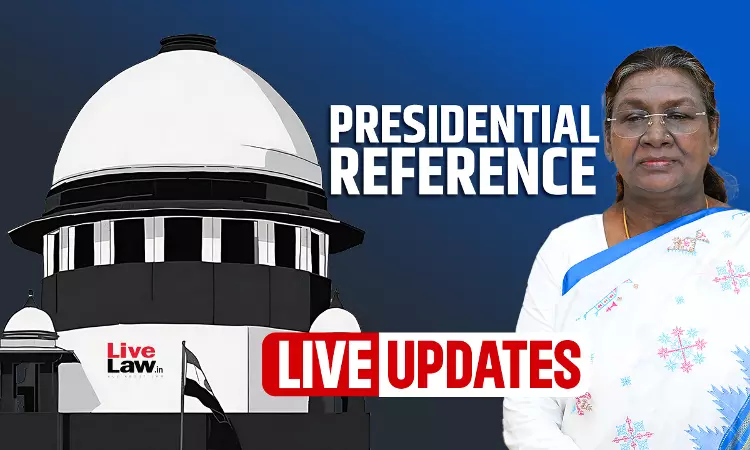Supreme Court Hearing-Presidential Reference On Timelines For Bills' Assent-DAY-2 : Live Updates
LIVELAW NEWS NETWORK
20 Aug 2025 10:21 AM IST

Live Updates
- 20 Aug 2025 11:39 AM IST
J Narasimha: we did not have any impact assesment, we see the amount of litigation it has thrown, it could tell us now the vision was right or not.
CJI: your argument, Article 200 would be one instance where Governor would exercise discretion?
SG: There are some conventions developed. Article 163 says Governor act in aid and advice but when first government is formed, by very nature the Governor has to act independently
CJI: we have some experience how some hon'ble governors have exercised discretion, leading to so many litigations
- 20 Aug 2025 11:26 AM IST
SG read Ambedkar's reply on whether discretion should be vested with Governor: "Now, speaking for myself, I have no doubt in my mind that the retention in or the vesting the Governor with certain discretionary powers is in no sense contrary to or in no sense a negation of responsible government."
- 20 Aug 2025 11:12 AM IST
SG reads Article 163 of the Constitution on Council of Ministers. Reads Constitutent Assembly debates on Article 163 where amendment was moved: “That in clause (1) of Article 143, the words ‘except in so far as he is by or under this Constitution required to exercise his functions or any of them in his discretion’ be deleted.”


